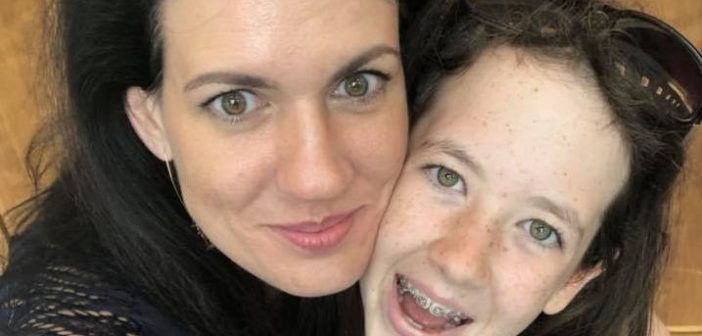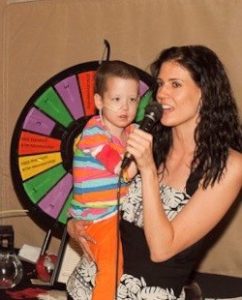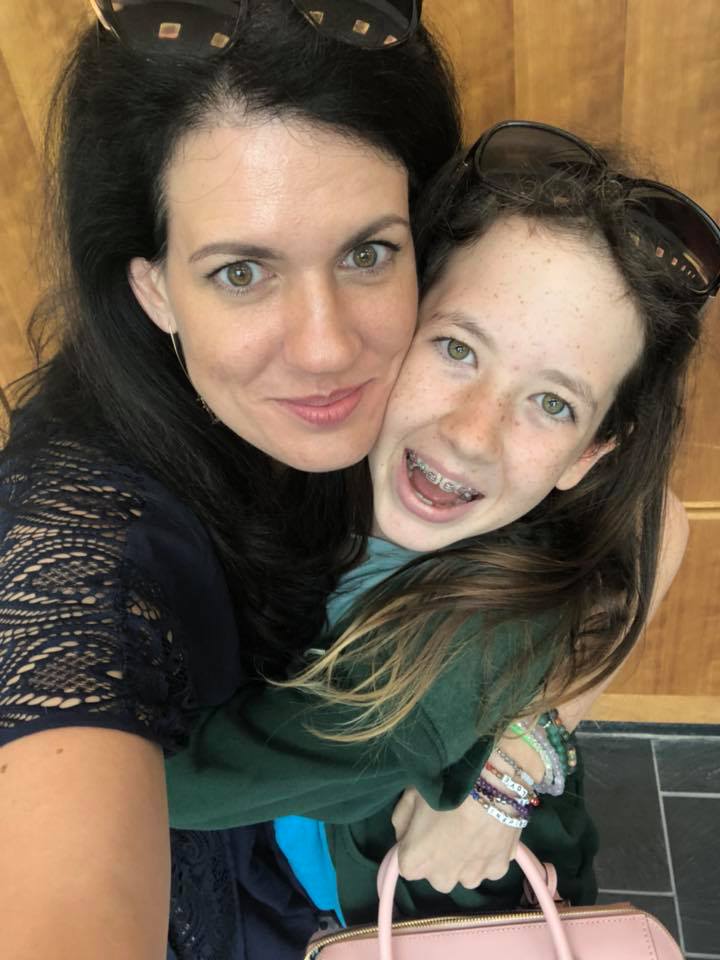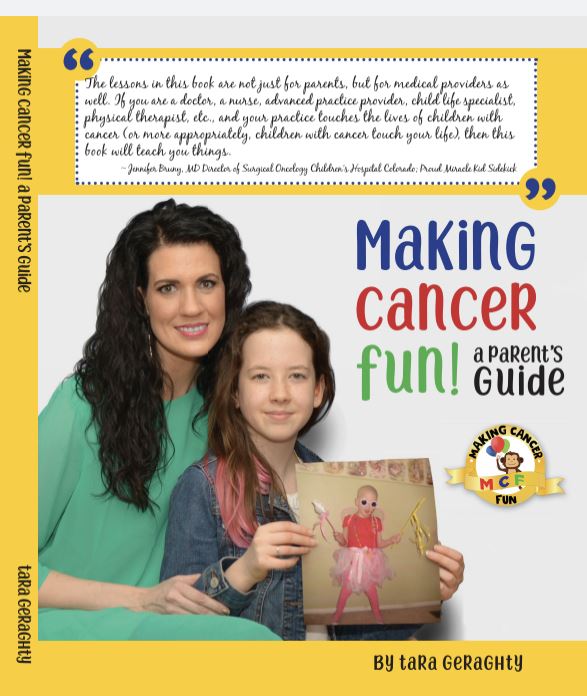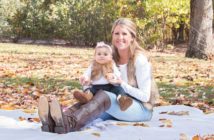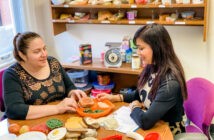Having a baby was something I always saw myself doing, but I’ve learned that thinking about being a mom and actually being a mom are two totally different things. I didn’t necessarily think of motherhood as caregiving, yet after giving birth, I learned that’s what it is (emphasis on giving). Being a caregiver meant sleepless nights, endless feedings and diaper explosions, but as difficult as it all was, nothing prepared me for what was to come—in the middle of a brutal divorce, my daughter was 3 ½ and diagnosed with cancer. It was then that caregiving took on a whole new meaning.
Two days before Thanksgiving I found myself in the Children’s Hospital emergency room. My daughter was having trouble breathing and unbearable pain in her stomach that had been eating at her for a month. It was there that I first heard the term that she had high-risk, stage 4 neuroblastoma, a childhood cancer. In that instant, caregiving became my full-time job. I got a crash course in oncology, nursing, medical play, and pharmaceuticals. I learned to read lab reports, flush multiple IV lines, administer medications, fill up formula bags to run through feeding tubes and inject painful shots into little legs. Suddenly being a medical momma became my normal routine. It was like caregiving on steroids.Those never-ending days in the hospital and equally long nights at home are still forever engraved in my mind.
And yet, in that crisis, there were so many gifts. Amid my fear of losing her, I vowed to use fun as our coping tool and created the most amazing memories. I stopped stressing about things that no longer mattered and adjusted my life perspective—people became more important than things, and I was grateful to live in the present. The future was too unknown. The bond between my daughter and I grew, and for once I was forced to do nothing but focus on her.
Now years later, she is 13 and I don’t have much to do at all with her daily care. She gets up before I do to get ready for school, packs her own lunch, and even started cooking dinner a few nights a week. Round the clock caregiving was a season that was intense, but just a season. I have friends though, that aren’t so lucky. They have kids with special needs that require caregiving most of their lives. And I know many that are doing a generational type of caregiving for both their young children and elderly parents, making it hard to ever a break.
Caregiving burnout is real because taking care of yourself is usually last. I struggled with self-care since it felt selfish of me to break away for my own benefit. But I had to let go of that guilt—I needed to survive and be present for my daughter, and with that, I created my own survival plan. If you find yourself struggling as a new mom or deep in caregiving, here are 3 tips that helped me avoid burnout and stay sane.
Sometimes you need an S.O.S. It’s OK to seek out support. When people asked if I needed help, I would decline, thinking I didn’t want to bother someone else. That changed when a friend asked how I felt when I had the opportunity to help someone. Of course, I realized, I felt great—I didn’t want to deny my friends that feeling. I started asking for help, and found everyone was more than happy to do it. One of the lessons this experience taught me was that it’s good to let others help me, because they benefit from it too.
Practice gratitude This one simple practice had life-changing benefits. Imagine having to come up with reasons every night to be grateful while living in the children’s oncology wing. But I did it and wrote it in a journal every day. Sometimes it was big things, like a good test result, but little things too, like friends who came to visit, my daughter laughing or just gratitude that tomorrow had the possibility of being better. It was the only way to see all the good amid the chaos.
Find the fun Fun was how I could control what was happening. I made it a priority: We had parties and celebrated every milestone, decorating her room with different themes. We played racing games with her breathing exercises, made a gum buffet when she wasn’t allowed to eat and used a moose puppet to high five unsuspecting visitors. Fun was a great diversion from daily stress and having the opportunity to laugh–even when I was practicing my own self-care— was one of the greatest gifts I gave to myself.
Being a caregiver opened me up to know that self-care is a practice just like anything else, and it gets easier over time. It helped me to see that this period is usually is a season in life and focusing on what you need today is what will get you through it. So, if you find yourself as a caregiver, be patient with yourself, know you aren’t alone in the struggle and remember you are stronger than you think.
In honor of National Caregivers Month this November, here’s to all the caregivers doing their best for those they care about!

